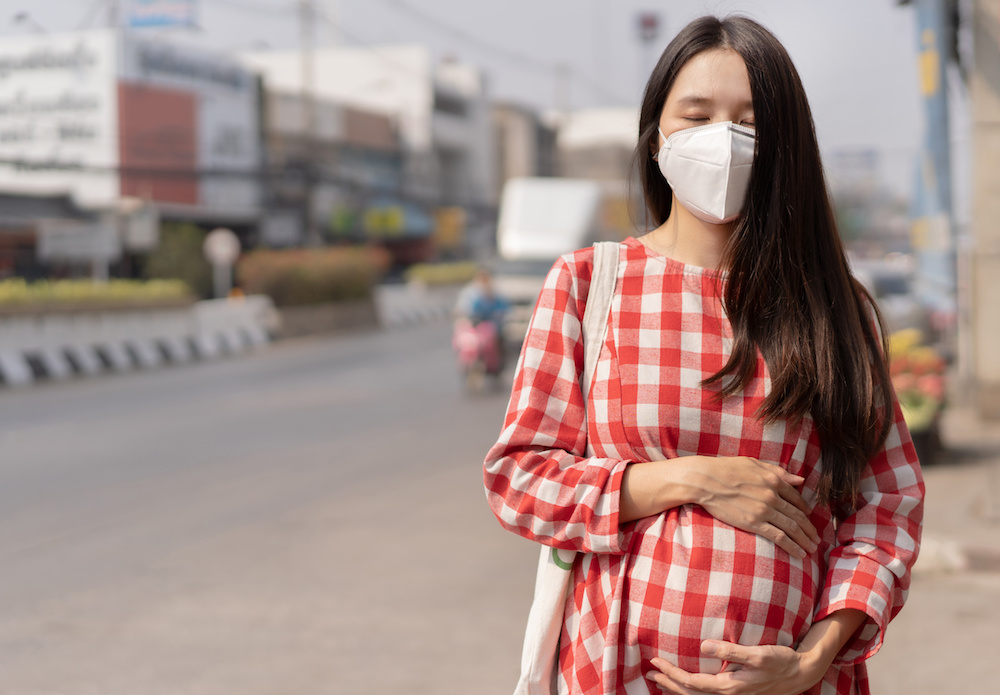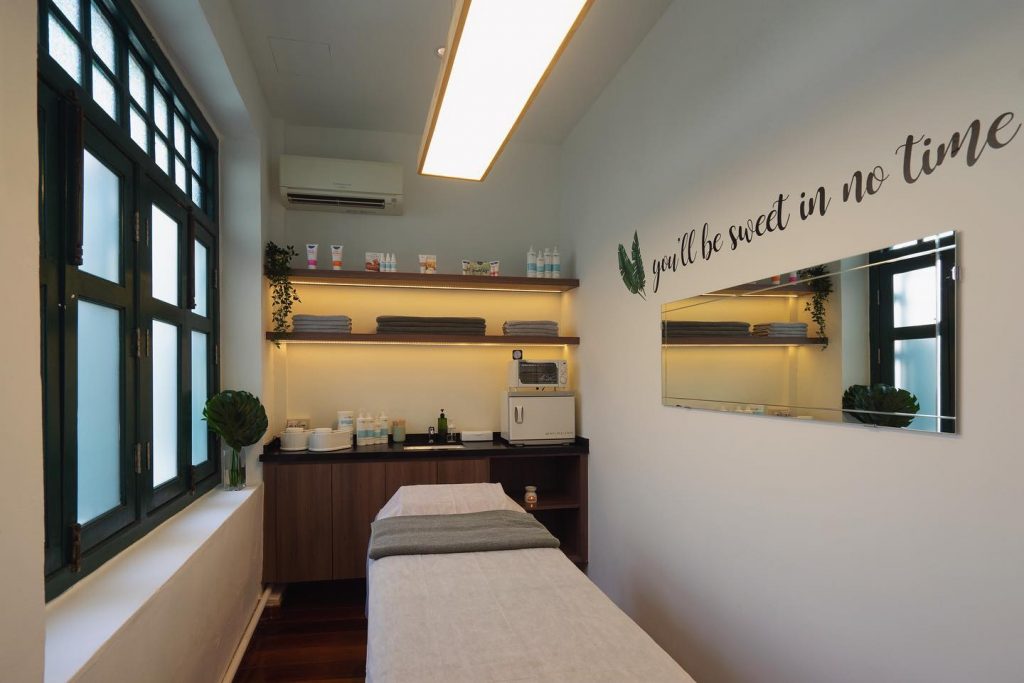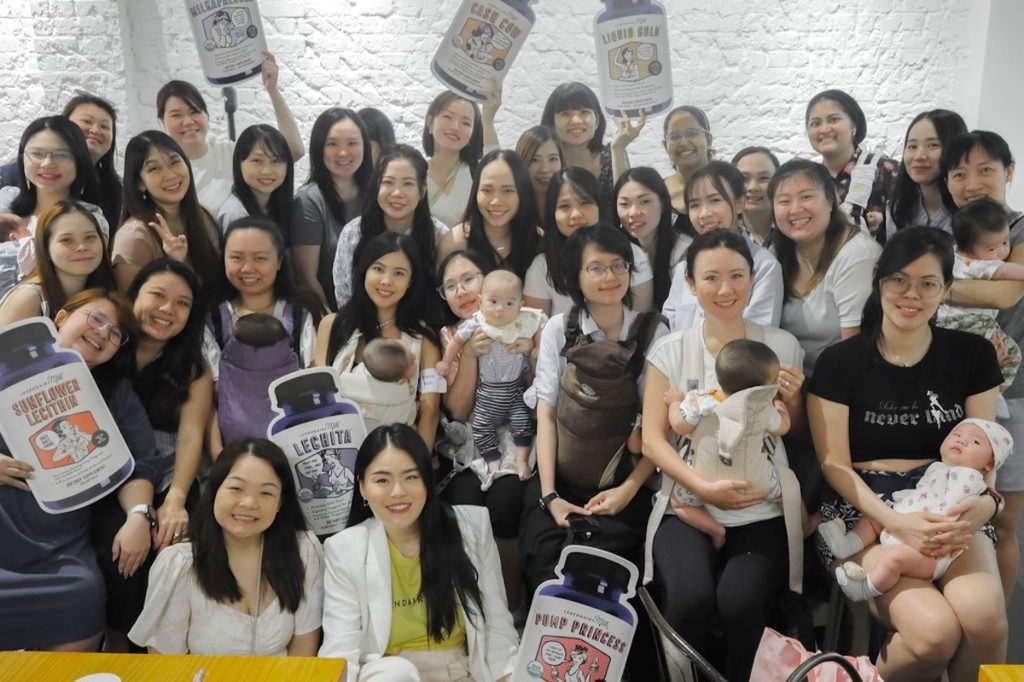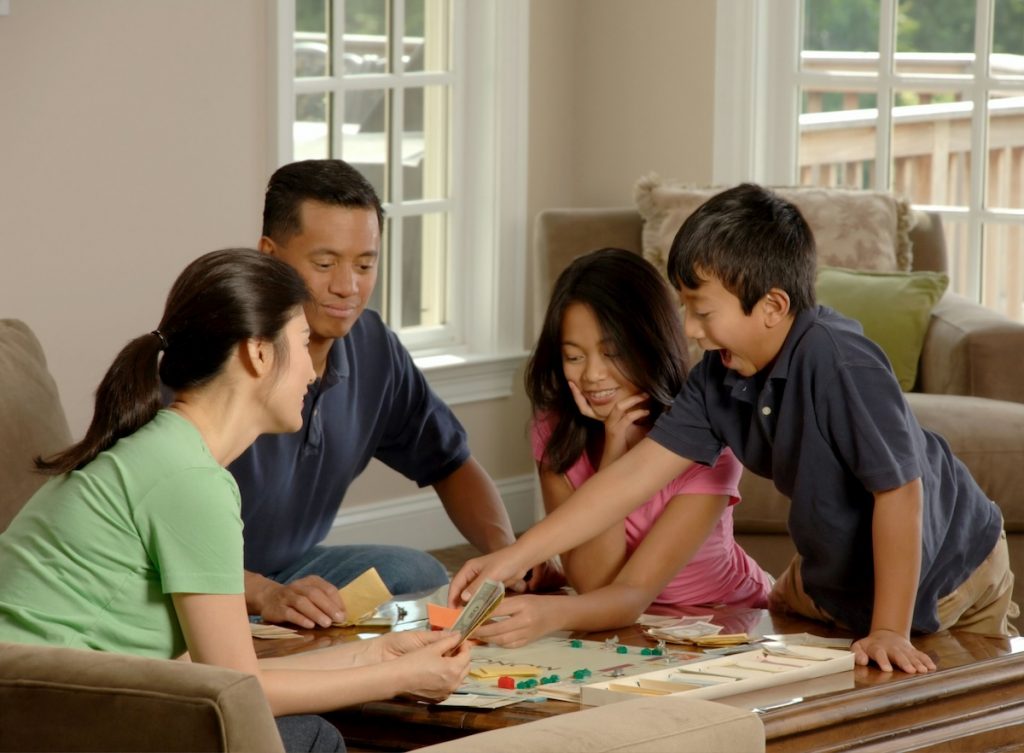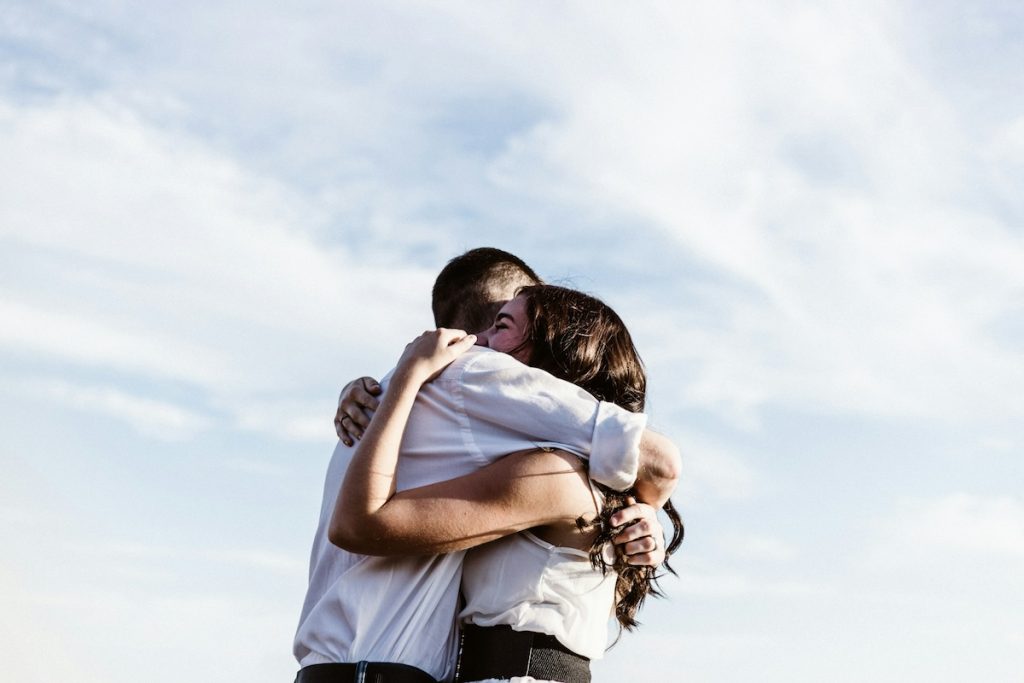Want to know how COVID-19 may impact your pregnancy, breastfeeding and if it can spread to your infant? Here's what you need to know.
Avoid Getting COVID-19
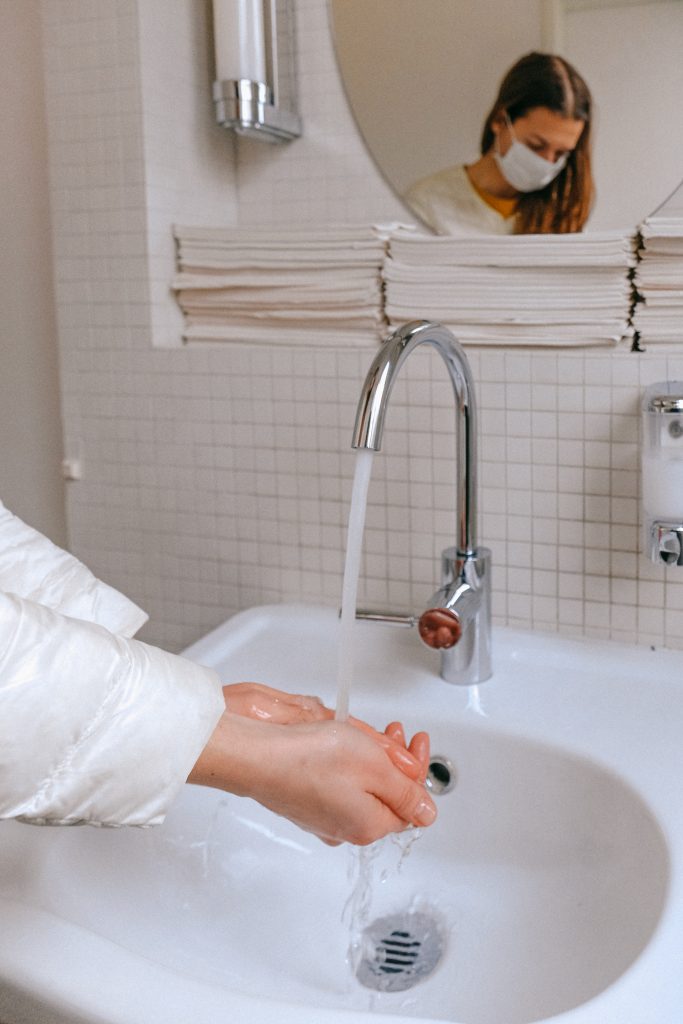
Celebrate Your Pregnancy Differently
It’s best to avoid going overseas during this time, especially to countries where the number of COVID-19 cases is super high. Do follow the travel advisories and postpone your babymoon or other non-essential travel. An alternative is to have a staycation instead.
Rather than having a big, elaborately planned baby shower, consider hosting a virtual one instead. Ways to do this include setting up a registry that your friends and family can purchase your gifts from, and then using Skype or Zoom on that day so they can watch you open your gifts, and spend some time chatting about your lives at the moment.
Social Distancing
It’s best to stay home as far as possible, but if unavoidable, practice social distancing, by sitting at least one seat away from others. If you are going out, avoid touching any surfaces such as door knobs or lift buttons. Use a pen, or a tissue instead.
Practice Good Hygiene as a Family
Practice good hygiene as a family, frequently washing your hands with soap and water or cleaning them with an alcohol-based hand sanitiser. Wash your hands for about 20 seconds. Additionally, do take your temperature twice a day to check for any fever.
As a family, avoid people who are coughing and sneezing. Next, ensure high-touch surfaces, such as tables, hard-backed chairs, toilets, sinks and remotes, are cleaned and disinfected daily. Also, launder items, including the washable plush toys, using the warmest water setting and dry items completely.
Consider a flu shot
One of the ways to prevent yourself from contracting dangerous types of flu, or reduce your severity is to get an influenza vaccine shot. This reduces the risk of serious medical complications from getting influenza. Additionally, it passively protects your baby through the trans-placental transmission of antibodies. It’s administered as a single dose and should be repeated yearly.
Hospitals' Precautions
When heading to the hospital for your prenatal checkup, you can wear a mask to be on the safe side. After going through a temperature check, you’ll also have to fill up a declaration form before seeing your OB-GYN. Only one person can accompany you to the clinics.
If You Do Get COVID-19...
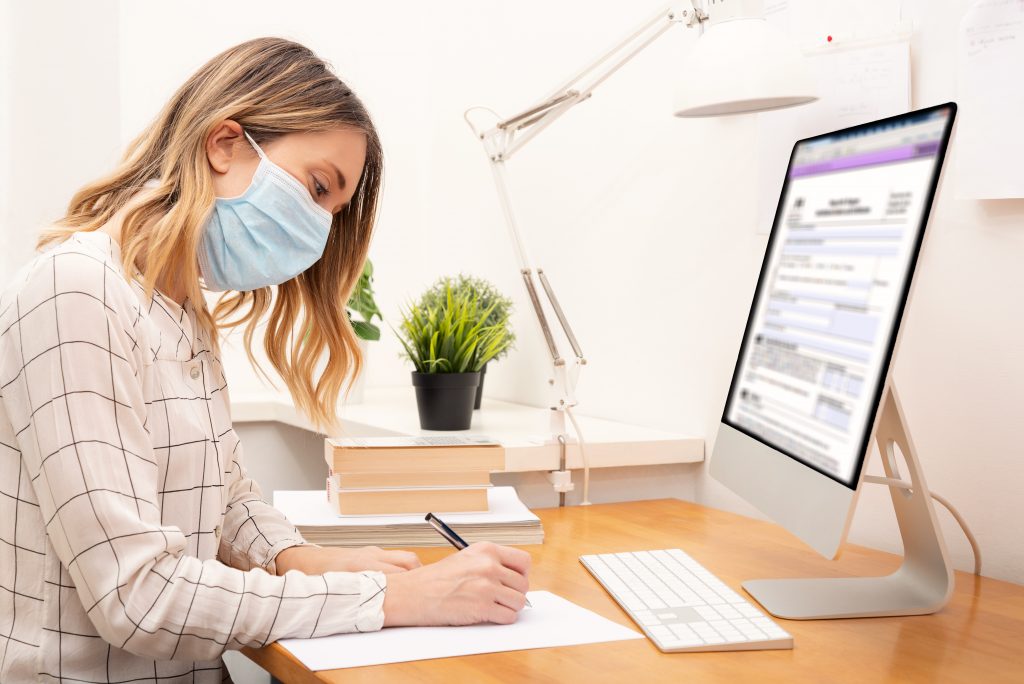
Contain the Virus
If you have or suspect you have COVID-19, do isolate yourself from your family members. Avoid school, work, public areas and public transport, and stay at home. Additionally, do not allow visitors, and ventilate the rooms by opening windows. Use your own towels, crockery, utensils and eat at different times. Opt for delivery services to run errands, but let them leave items outside.
Coronavirus Symptoms in Third Trimester
Should you have any symptoms, call your OB-GYN for advice. Definitely self-isolate yourself during this time. If you feel like you’re in labour, let your OB-GYN know and take either private or hospital transport to get there. Wear a face mask to avoid getting others sick.
You’ll likely be tested for coronavirus, and your birth partner should be able to stay with you through your delivery. Only two designated visitors will be allowed during your hospital stay.
Once your baby is born, he/she will also be tested for coronavirus. To care for your baby during this time, wear a mask and practice good hygiene when nursing or having skin-to-skin contact. Always follow what your healthcare practitioner advises, even if it means being temporarily separated from your baby.
Will My Baby Get it Too?
Initial, limited studies seem to indicate that mothers with COVID-19 do not pass the coronavirus on to their babies. The first study showed that nine mums in their third trimester with COVID-19 gave birth to healthy infants via caesarean section. These babies tested negative for coronavirus, as did the mother’s breast milk and fluid surrounding infants in the womb.
Likewise, in a report of four mothers, three gave birth via C-section, and one through vaginal delivery. All infants were discharged healthy together with their mothers, testing negative for the coronavirus. However, it must be added that this data is still very limited, so if you’re feeling unwell, please contact your healthcare provider.
COVID-19 in Children
According to the research that focuses on infants and children, these usually have less severe symptoms than adults. Of 2,143 patients ranging from 1 day to 18 years with suspected or confirmed COVID-19, most cases were mild and only one child died. Only 6 per cent had severe symptoms – more cases occurring in infants – as compared to about 18 per cent of adults with severe illness.
These symptoms are similar in children and adults, although children generally have milder symptoms that may include fever, runny nose and cough. In some cases, children have also experienced vomiting and diarrhoea. However, what’s still inconclusive is how the virus impacts children with underlying medical conditions and special healthcare needs.
Can I Breastfeed My Baby?
In the limited studies on women with COVID-19 and Severe Acute Respiratory Syndrome (SARS), the virus has not been detected in breast milk. As breast milk protects your infants against many illnesses, you can continue breastfeeding your child even if you have COVID-19.
Do avoid spreading the virus to your little one. Wash your hands before touching your baby and wear a face mask during breastfeeding. If you’re expressing your breast milk, wash your hands before touching the pump or bottle parts and thoroughly clean each part after use. Moreover, it’s best to get someone who is well feed the breast milk to your infant.
Related: What you have to know about COVID-19, and how you can help charities. We’ve also highlighted some of the best women-led businesses to support during this time.



